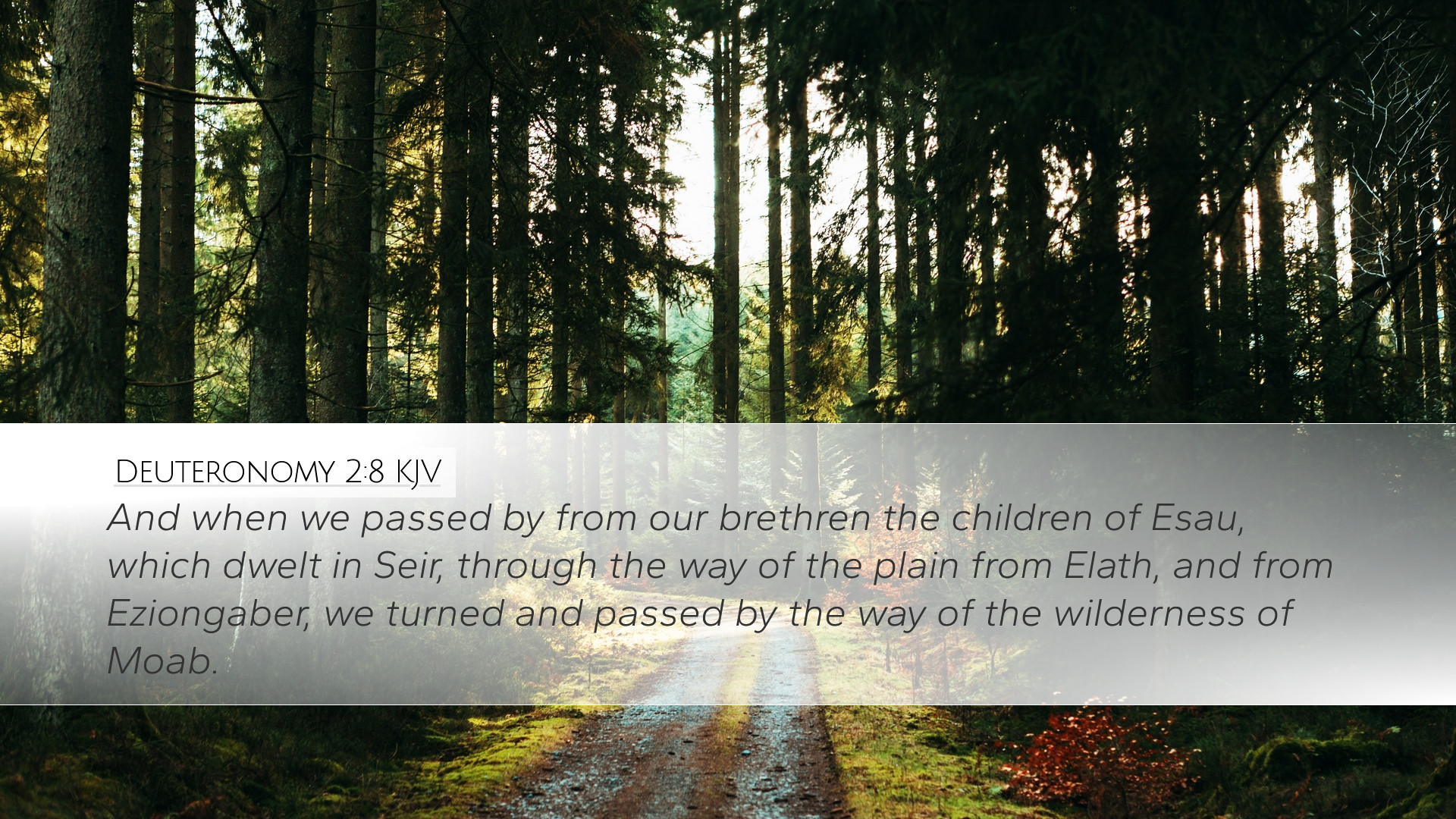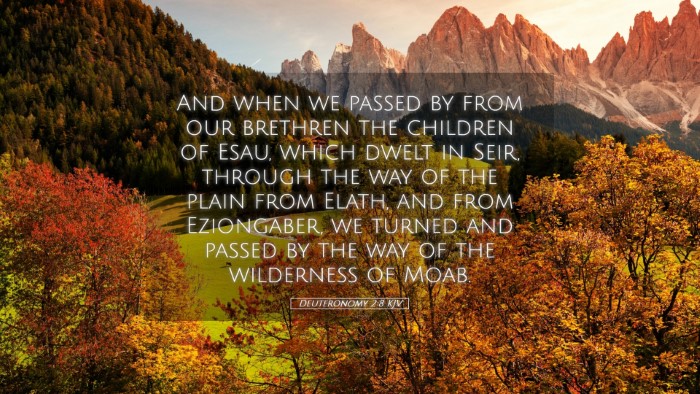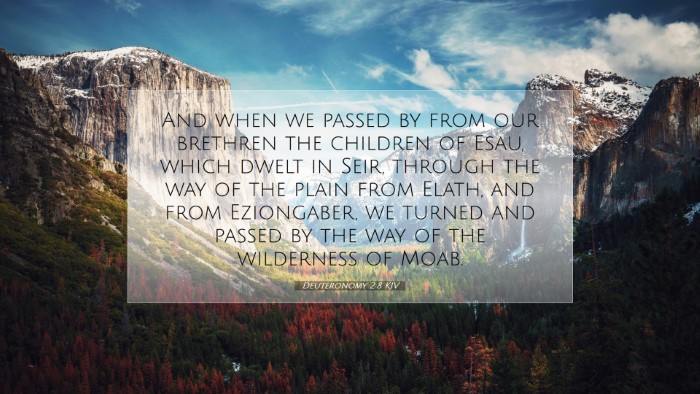Deuteronomy 2:8 - Biblical Commentary
Deuteronomy 2:8 states: "And when we had gone past our brothers, the descendants of Esau, who live in Seir, we turned aside and crossed over the Wadi Zered." This verse is a transitional part of Moses' exhortation to Israel, reflecting on their journey and the lessons learned in their wilderness experience.
Contextual Overview
The Book of Deuteronomy is predominantly a collection of speeches by Moses as he prepares the Israelites to enter the Promised Land. The context of this verse is within the broader narrative of the Israelites’ wanderings. They are making their way toward Canaan and have encountered the Edomites, descendants of Esau. This reflects the ongoing journey of God’s people and their interactions with adjacent nations.
Insights from Public Domain Commentaries
Matthew Henry's Commentary
Transitioning Through Territories: Matthew Henry emphasizes the importance of the Israelites respecting the boundaries established by God. The Edomites had been given the land of Seir, which the Israelites were to avoid. This avoidance signifies obedience and respect for God’s distribution of land among nations. Henry notes that this encounter with the Edomites serves as a reminder to believers that they must acknowledge divine ordinances and boundaries.
Divine Providence: Henry discusses the providential hand of God in the path of the Israelites. He notes that although they had to circumvent the land of Edom, it was ordained by God for their good. He encourages believers to trust in God’s guidance even when it seems to lead through difficult terrain or encounters that require patience and wisdom.
Albert Barnes' Commentary
Historical Implications: Albert Barnes provides insights into the historical context of the passage, noting that the relationship with the Edomites was significant due to their lineage. He elaborates that this relationship is rooted in the familial ties traced back to Isaac and Abraham, which adds depth to the command to avoid conflict with them. The verse illustrates a period of solitude and preparation before entering the promised inheritance.
Reflection on Relationships: Barnes points to the broader implications of this verse regarding interactions with others. The Israelites' respectful approach illustrates a model of how to relate to neighboring communities, emphasizing peace over conflict. He advises modern Christians to maintain peaceful relations with those they may view as adversaries or who differ in belief and practice.
Adam Clarke's Commentary
Geographical Significance: Adam Clarke notes the geographical elements mentioned in Deuteronomy 2:8, such as the Wadi Zered. He explains that the physical landscape has theological importance, representing the challenges and obstacles faced by the Israelites. The crossing signifies a movement into a new chapter of faith and reliance on God’s provision.
Symbolism of the Journey: Clarke elaborates on the metaphorical significance of the journey through and around Edom. He uses this as an analogy for the believer's spiritual journey, underscoring the importance of navigating around life’s difficulties without losing sight of the ultimate goal—entering into God’s promises. Clarke encourages believers to be attentive to the guidance of the Holy Spirit, who leads them along their spiritual path.
Theological Implications
The verse, in its simplicity, carries profound implications for understanding God's sovereignty and the dynamics of human relationships under divine guidance. It reflects the nature of God’s faithfulness to His covenant people while simultaneously instructing them in the ways of peace and respect towards others.
Lessons for Modern Believers
- Respect for God’s Boundaries: Just as the Israelites were commanded to respect the land of the Edomites, modern believers are called to respect the boundaries set by God, whether they be moral, spiritual, or community-oriented.
- Patience in the Journey: The Israelites had to take a detour, which illustrates that patience is often required in the life of faith as one waits for God’s timing and direction.
- Peaceful Coexistence: The verse prompts reflection on how believers interact with those outside their community or tradition, encouraging dialogue rather than confrontation.
Conclusion
Deuteronomy 2:8 serves as a reminder of the intricate interplay between divine direction and human interaction. By reflecting on the teachings of prominent commentators such as Matthew Henry, Albert Barnes, and Adam Clarke, modern believers are encouraged to navigate their spiritual journeys with respect, patience, and a commitment to peace, recognizing God's sovereign hand at work in their lives.


